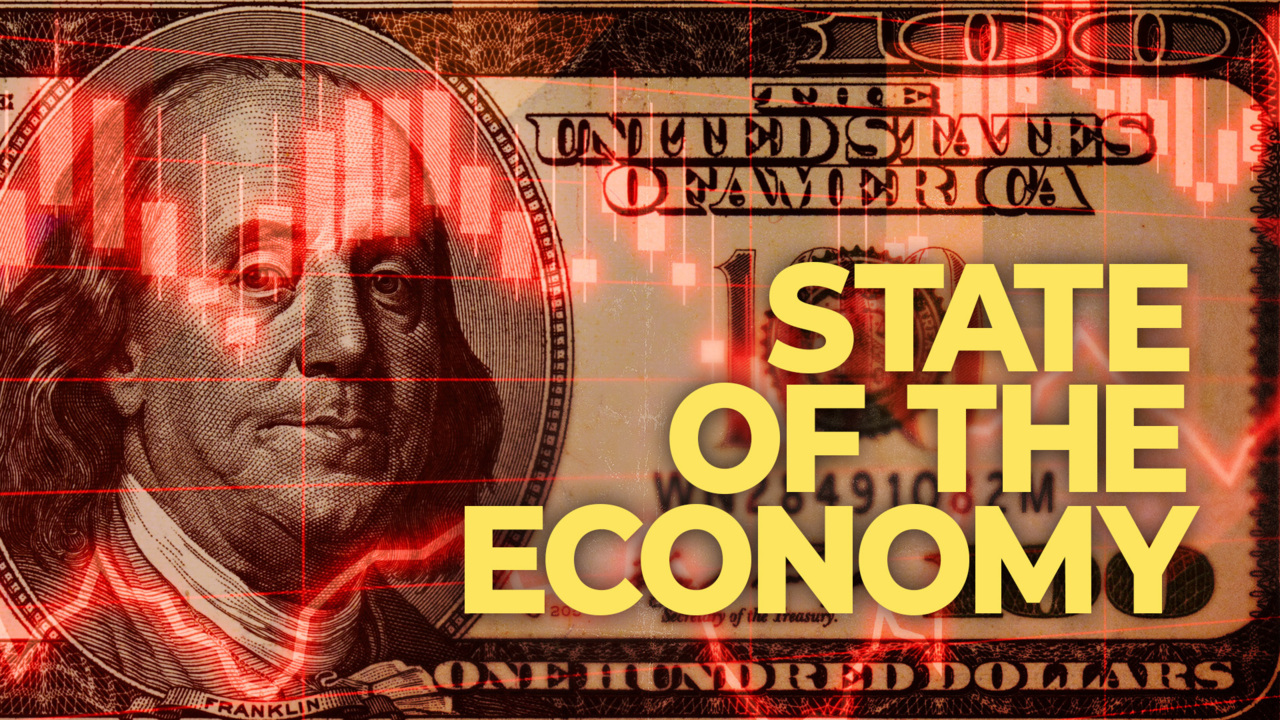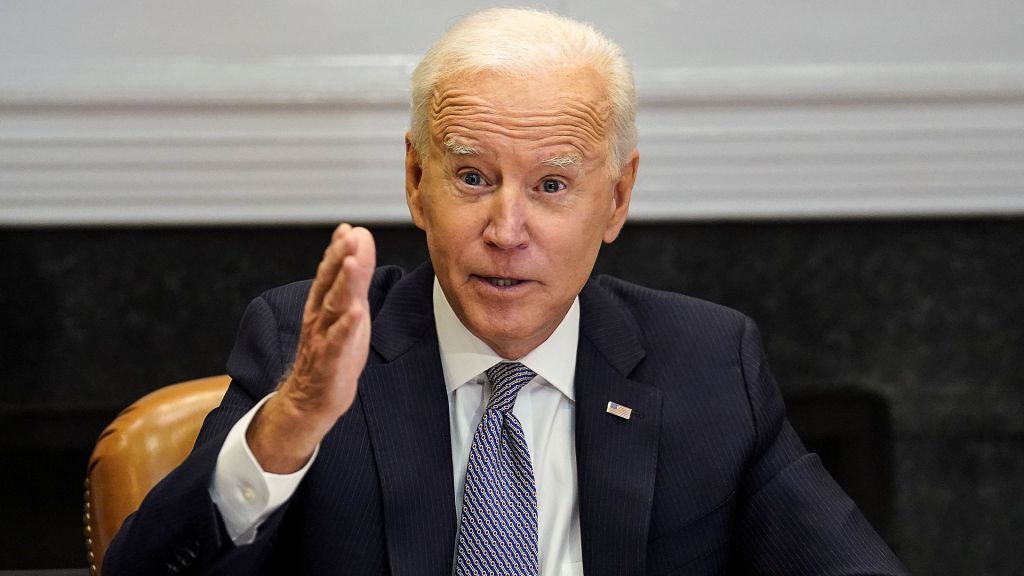
SIMONE DEL ROSARIO: BY NOW YOU’VE HEARD THE U-S ECONOMY SHRANK FOR THE SECOND CONSECUTIVE QUARTER. AND NOW WE HAVE A POLITICALLY-HEATED DEBATE ON OUR HANDS: ARE WE IN A RECESSION?
PRESIDENT JOE BIDEN: that doesn’t sound like a recession to me.
FEDERAL RESERVE CHAIR JEROME POWELL: i do not think the US is currently in a recession.
FOX BUSINESS ANCHOR MARIA BARTIROMO: We are officially in recession dagen.
CONGRESSMAN KEVIN MCCARTHY: this morning the government announced what every american has been feeling for nearly a year, we are in a recession.
FOX NEWS ANCHOR: The administration’s already let us know they don’t consider two quarters of negative growth a recession, does senator kennedy?
SENATOR JOHN KENNEDY: Yeah.
SIMONE DEL ROSARIO: SO WHO ARE YOU SUPPOSED TO BELIEVE? I’LL START BY TELLING YOU THAT NOT ONE OF THOSE PEOPLE MAKE THIS CALL.
THAT’S UP TO THE NATIONAL BUREAU OF ECONOMIC RESEARCH AND THIS PRIVATE LITTLE PANEL OF ECONOMISTS ESTABLISHED IN 1978 TO KEEP POLITICS OUT OF THE PROCESS.
IN FACT THEY MEET IN SECRET AND WE DON’T EVEN HEAR ABOUT IT AFTER UNLESS A FORMAL DECISION IS MADE.
THE RECESSION ANNOUNCEMENTS AREN’T TIMED, WHEN THEY ARE SURE OF THE DATA – THEY SAY IT, NO MATTER WHERE WE ARE IN A POLITICAL CYCLE.
AND THEY ARE VERY SURE. THIS COMMITTEE HAS NEVER REVERSED A CALL.
BUT BEING THAT SURE CAN TAKE LONGER THAN WE’D LIKE. MONTHS, EVEN A YEAR. AND WE’RE IMPATIENT PEOPLE. SO WE LOOK FOR HINTS IN THE ECONOMY IN THE MEANTIME, LIKE TWO CONSECUTIVE QUARTERS OF NEGATIVE GDP.
THE MOST CONVINCING EVIDENCE THE FIRST SIX MONTHS OF THIS YEAR WAS NOT A RECESSION?
FEDERAL RESERVE CHAIR JEROME POWELL: There’s just too many areas of the economy that are performing too well and of course i would point to the labor market in particular.
SIMONE DEL ROSARIO: IN EVERY RECESSION LOOKING BACK MORE THAN SEVEN DECADES, UNEMPLOYMENT WAS EITHER CLIMBING PRIOR TO THE RECESSION OR RISING AT THE START OF IT.
AND THE FIRST SIX MONTHS OF THIS YEAR, WE’VE ACTUALLY SEEN UNEMPLOYMENT GO DOWN, FROM 4% TO 3.6%.
SO HAVE WE BEEN IN A RECESSION THE FIRST HALF OF THIS YEAR WITH UNEMPLOYMENT GOING DOWN AND PAYROLLS GOING UP? PROBABLY NOT – ESPECIALLY WHEN YOU CONSIDER THAT ACCORDING TO THE NBER:
“In recent decades, the two measures we have put the most weight on are real personal income less transfers and nonfarm payroll employment.”
THAT SAID, DOES THAT MEAN THINGS ARE ROSY OUT THERE? NO. 40-YEAR HIGH INFLATION AND THE FEDERAL RESERVE RAISING THE INTEREST RATE IS MAKING IT PINCH. AND NOW ENTERING THE SECOND HALF OF THE YEAR, WE ARE SEEING A MORE SIGNIFICANT SLOWDOWN.
REAL WAGES ARE FALLING, THAT’S WAGES ADJUSTED FOR INFLATION.
UNEMPLOYMENT CLAIMS ARE STARTING TO PICK UP, EVEN THOUGH THEY’RE STILL HISTORICALLY REALLY LOW AT THIS POINT.
AMERICANS ARE STARTING TO SPEND LESS MONEY.
AND THE HOUSING MARKET IS DRAGGING, ESPECIALLY IN INVESTMENT.
ALL OF THIS TOGETHER HAS CONSUMER CONFIDENCE DROPPING, NOW AT ITS LOWEST LEVEL SINCE FEBRUARY 2021.
TREASURY SECRETARY JANET YELLEN: some may worry that the economy that the labor market will weaken but i think the biggest burden that’s weighing negatively on household sentiment is inflation and that’s why that is our top priority in terms of addressing that.
SIMONE DEL ROSARIO: AT THE END OF THE DAY SEMANTICS OVER ECONOMIC CONDITIONS – DOESN’T MATTER WHEN YOU’RE STRUGGLING TO FEED YOUR FAMILY AND FILL UP YOUR CAR.
IT’S JUST BUSINESS AND I’M SIMONE DEL ROSARIO.






